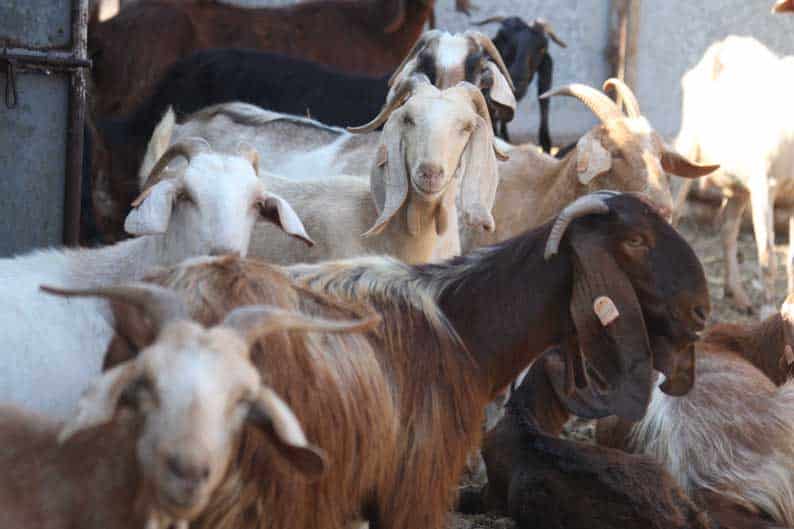The ‘goat plague’ killing off sheep and goats in Greece and Romania is not affecting Cyprus’ small ruminants, however neither the island nor the EU as a whole are turning a blind eye.
Director of the Veterinary Services Christodoulos Pipis told the Cyprus Mail that an epidemiological survey is being carried out to determine how what’s known as the Peste des Petits Ruminants virus reached Eastern Europe.
“We do not have any cases. We never did,” Pipis said.
He went on to say that the EU has imposed restrictions on animals and animal products from the affected areas.
Additionally, the Greek agriculture minister has “unilaterally taken a decision prohibiting the transportation of animals and animal products outside Greece” in an effort to contain the virus.
“In practice, there is no danger of spreading the virus from Greece,” he said.
Pipis assured the Cyprus Mail that the virus cannot be transmitted to humans.
“It is not transmitted to humans.”
The virus, however, is dangerous for small ruminants, which it kills.
“There are huge losses of animals where the virus has not struck before,” Pipis said.
Measures to tackle the virus are euthanising the animals that are infected.
Animal remains are either incinerated or buried on the spot if transporting them to an animal crematorium cannot be done without the risk of spreading the virus.
Pipis said that if animals are buried at the site, they are “enriched with lime and disinfectants”.
Cyprus, he said, not being affected, cannot take any measures at this time “due to the open market”.
“We cannot unilaterally impose any restrictions that would affect the unhindered functioning of the open market,” he said.
Farmers are obliged to inform the Veterinary Services as soon as they suspect the presence of the virus, which apart from sheep and goats can also infect wild ruminants.
The virus, which is highly contagious and fatal to ruminants, was first reported in 1942 in the Ivory Coast and since then has appeared in many countries of Africa, the Middle East and Asia.
‘Goat plague’ is endemic to Turkey.
It is transmitted through close contact of healthy and infected animals and through infected food, water and equipment, where it can survive for up to 72 hours, depending on moisture levels, the temperature and the presence of natural light.
The most common way of the disease spreading further, is the transportation of infected animals.
The virus has an incubation period of four to six days but can stretch to ten.
Clinical symptoms include high temperatures lasting up to five days, fatigue, anorexia, increased eye and sinus mucus and mouth ulcers, followed after a few days by watery bloody diarrhea, pneumonia, coughing and breathlessness.
If the animal survives, the symptoms can last up to a fortnight.
Farmers are urged to keep their animals enclosed, up their sanitary practices, dispose of waste, drain areas of stagnant water and keep insect and rodent populations low.
Restrictive measures are applied within a 10km radius of an infected farm to contain the disease.
Flocks should be inspected on a daily basis and the Veterinary Services informed of suspected infections or if milk production drops.







Click here to change your cookie preferences